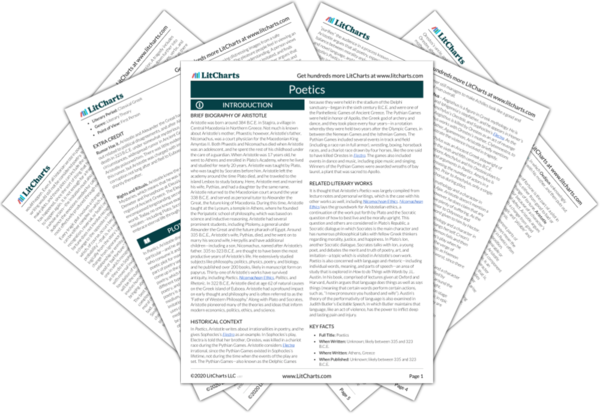A character who is on the verge of knowingly performing a “terrible and pitiable” act but then stops is the worst kind of
plot. Such a plot is not tragic, and there is no suffering; thus, it is rarely used, except for
Creon in
Antigone. How the pitiable action is performed is less important, but it is better if the action is performed unknowingly and followed by
recognition. There is no “disgust” to be found in an act committed in ignorance, Aristotle argues, and it has a strong “emotional impact.” The best plots, Aristotle claims, are those like
Merope’s actions in
Cresphontes: she nearly kills her son without knowing who he is, but she stops when she recognizes him.
